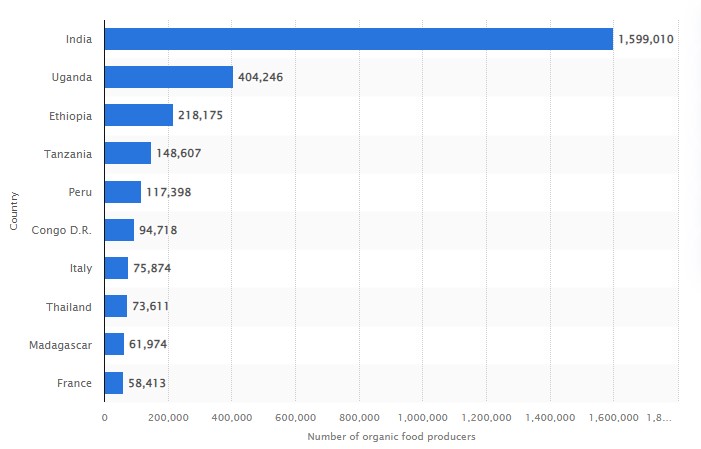That does not make it better for everyone else.
A new article used the Bootleggers and Baptists analogy for why groups who might not seem like allies support regulations that act as bans against science. Baptists, at least in the old days, wanted bars and liquor stores closed on Sundays. So did Bootleggers. They had different reasons but both benefited and both insisted the goal was to serve the public interest.
In a modern example, the seed and chemical company BASF and the activist group Greenpeace have very little in common, and yet BASF was completely happy to support bans on GMOs in Europe and so is Greenpeace. BASF harmed its competitors by promoting activism in its backyard and then regulations to make themselves the favorite choice - the way bootleggers profit if bars are closed on Sundays - while the Baptists in this example, Greenpeace, say they are protecting the public from a Science Devil trying to seduce everyone.
Neither care about the public. (1)
I know, I know, the public thinks Greenpeace is doing some sort of special work, the same way Natural Resources Defense Council, Environmental Working Group and others put halos on their own heads, but such public belief is due to rather poor science literacy, excellent marketing by those groups, and too much television. Environmental groups care about money, $3 billion worth of money. BASF cares about a whole lot more than $3 billion, especially if they can take it from Bayer or Syngenta. Which is why the products they are fine with banning in the US got worked on by their scientists in the US.
What gets left out are farmers and, ironically, environmentalists. In America, science is working so well that millions of acres of farmland are going out of use. The problem is that the federal government already owns too much, the Obama administration even leased 5,000,000 acres out to corn farmers to prop up its ethanol mandates and subsidies, which means unused farmland is instead going to housing.
Environmentalists know so little about the science they distrust, and economics that they can ignore, that in their hatred of farmers they accomplished something worse for the environment.
Yet that is a US luxury, just like it is in natural breadbaskets such as France and Ukraine, where everyone can pretend they don't need science and can slap an organic sticker on crops for higher profit. In developing countries letting activists win, along with profiteering companies who exploit their greater dislike for competitors, puts people at risk of starvation.
Farmers want to be competitive, but they can't do that if Europe bans any import made using science, and people in Africa and Asia want the better lives and culture that comes with basic needs like food and energy being affordable. Yet white western activists want to keep poor brown and black people cooking and heating homes using wood and dung - because the only thing affordable for centralized energy is coal or gas, and only solar is allowed if they want a loan from the World Bank.
As of now, four African nations have shucked off European colonialism and approved GMOs. Some countries are hybrid. India exports a lot of cotton, for example, so that is GMO and commercial farmers boosted profits by 50 percent using it. But food farmers are stuck in the 18th century,(3) which is why the poor there are shockingly poor, unlike the US, where San Francisco can offer poor people of color $5 million just for existing. Wider use of modern technology - affordable stuff like seeds and weedkillers, not capital expenses like tractors - would do the same for food. The world needs more films like "RRR" a lot more than it needs another tedious activist getting retweeted by New York Times journalists on Twitter.
I talked about bootleggers and baptists, where does Battlestar Galactica come into it? The show was definitely an anti-technology screed. The stupidest navy in the history of the universe only had one battleship that couldn't be hacked by their robotic enemy(4) and doomsday prophets always believe that science and engineering is going to create a monster.
Mostly I just like the way it all sounded together, thanks to the this pre-credit opening of "The Office" in 2007's "Product Recall" episode.
NOTES:
(1) That is not to say no one cares. Maybe ground-level employees care, I worked at PIRG decades ago, and they were wrong about a lot (like nuclear energy) but they were right arguing that a bottle bill was going to be better for recycling than government union employees doing it at high cost. In California today, among our top 10 exports is garbage. Government may want you to think that greasy pizza box is becoming an Amazon box next month but it is actually being put onto an emissions-belching ship and traveling to China, where they pretend it will get recycled some time this century.
(2) Ask an employee at any activist group what happens if they don't hit their revenue number two quarters in a row, and it is identical to a whole lot of private sector pesticide companies.
(3) It's not even close. India produces more "organic" food than numbers 2 through 10 - combined. That's not a good thing.

(4) It us unclear why. Glen Larson had done The Six Million Dollar Man, which was the opposite of Luddite. It may have instead been an anti-government thing, since President Johnson had created a government so corrupt that Richard Nixon then assumed he couldn't get caught. 'Don't trust politicians when you're the one dodging the bullets' is a good mantra of the military, even as the President is Commander In Chief.




Comments